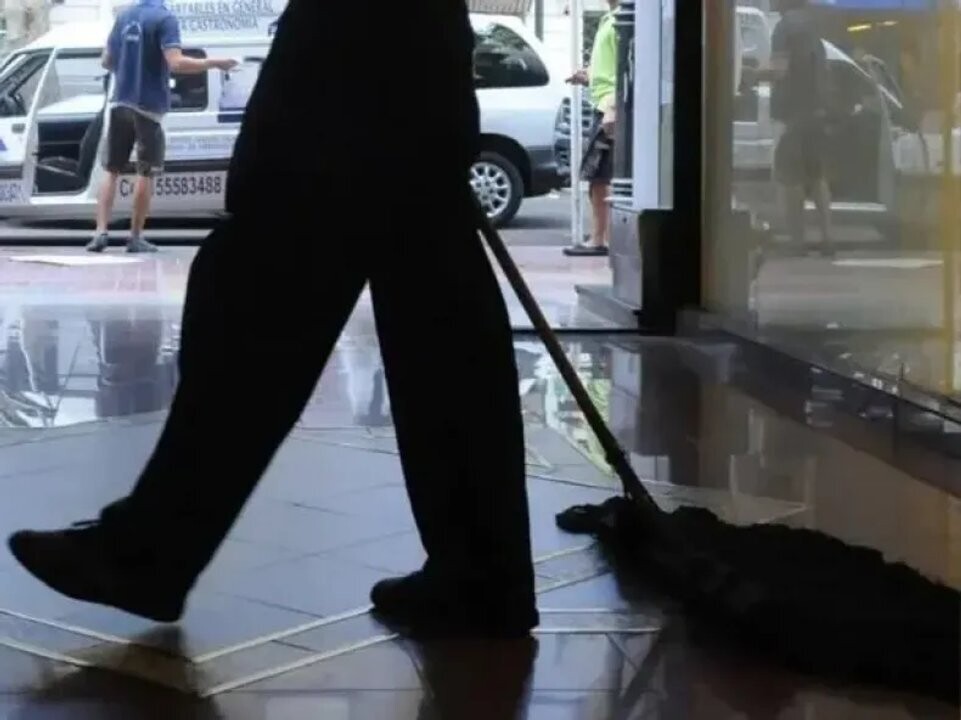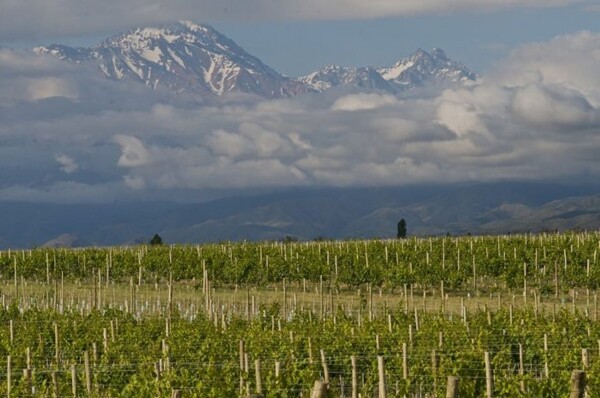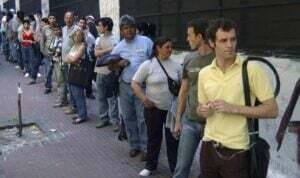
Housing rentals found a new point of equilibrium between supply and demand for properties after deregulation, albeit at elevated values compared to the average incomes of the population, which changed the faces (and behaviors) of temporary tenants. Since the Airbnb system is practically exclusive to tourism and the visit of foreigners decreased due to the inflation in dollars that made stays more expensive, the units that were offered in the segment either left the market or were allocated for short-term occupations, up to a month, to residents who usually seek apartments under longer contracts and normal terms. Depending on the location, they are also made available to potential local vacationers during the season or in neighboring towns.
One case is Mendoza, from where one crosses to Santiago de Chile and the city serves as a stop for those traveling from other points in the country, both for departure and return. Precisely, in the capital of Mendoza, a latent conflict between building managers and tenants occupying apartments for brief periods has erupted, reaching the provincial Legislature. The Unique Union of Workers of Rental and Horizontal Buildings (SUTERH), representing 450 managers, presented to provincial deputy Enrique Thomas (PRO), one of the problems brought by temporary rentals in Greater Mendoza, concerning tenants who generate more than one disturbance for regular residents.
The union's general secretary, Carlos Esteban Flores, explained that the complications are not addressed by any current regulation. "The people who come for vacation break everything and harm residents who want to sleep, as they obviously have no schedule," explained Flores. He cited as an example the property where he works as a manager, where "90% is under temporary rental and every night I have issues with arrivals, departures, and noisy disturbances." He added that on several occasions he had to call the police to resolve the situation.
Thomas is pursuing a project developed together with the Ministry of Labor of Mendoza, the General Directorate of Schools (DGE), and the Unique Union of Workers of Rental and Horizontal Buildings in Mendoza (SUTERH), aiming to elevate the role of the building manager, "not only in the maintenance of facilities but also as an assistant in emergencies through training." Its sanction would depend on progress toward possible regulations on temporary rentals addressing these excesses.
The existing regulation for temporary rentals dates back to 2010, prior to the proliferation of platforms like Airbnb or similar ones, and does not mention any kind of reference related to tenant behavior. The possibility of designating an apartment for temporary rentals depends on the statute of each building. Once such designation is obtained, the disturbances that tenants might cause in the building are not regulated in any way.
The situation does not differ much from that characterizing the rental market across the country following deregulation. In the Cuyo province, the disturbances caused by temporary occupants are only covered in the Contravention Code, whose article 55 deals with Disturbing Acts and Disorders. The regulation specifies in section G the consequences of "disturbing rest, coexistence, work activity, or peace of individuals with screams or noise, abusing sound instruments, failing to prevent annoying noises from animals, or exercising a noisy trade in a notably abusive manner, which due to their volume, repetition, or persistence exceed normal tolerance."
The new profile of both the supply and demand for properties places the conflict on a plane previously hidden by the distortions that prevailed in the market. In places like the City of Buenos Aires, until the beginning of the year, there were nearly 20,000 apartments whose owners, scared by the Rental Law, were attracted to the high profitability of the Airbnb model. However, the decrease in tourists left hundreds of owners with vacant units, especially those that did not meet current demand, exacerbated by the fact that few expect a quick recovery in the short term.
"Tourists from neighboring countries have stopped visiting Argentina for shopping and tourism due to inflation in dollars. This is compounded by the rising maintenance costs for owners due to increased rates. Remember that all expenses are included in these rentals," indicates leading real estate agencies. Due to the impossibility of raising the nightly rate due to low demand, hundreds of owners withdrew their properties from platforms like Airbnb and transferred them to agreements lasting up to a year. Some owners even returned to traditional rentals, although they face the complication of clearing out the furnishings and equipment from the properties.
But the equation is also modified by timely payments and the relationships between tenants, owners, and especially neighbors. Managers are forced to mediate in coexistence conflicts due to the change in composition among the parties involved. Areas like Puerto Madero have seen a decrease in student arrivals, an increase in executives, and a continuous flow of digital nomads, foreigners who come to Buenos Aires to work remotely without needing to be overly concerned about costs.
Tourist demand accepts an average price per day of US$ 25, which amounts to US$ 750 per month. US$ 300 must be deducted monthly for expenses, and considering a 65% occupancy, the net gain is around US$ 292 monthly. The demand for short-term rentals faces a monthly price of US$ 850, with expenses of US$ 200, and a 90% occupancy, resulting in a net gain of US$ 585 monthly. Finally, traditional housing rental, at US$ 385 per month, without maintenance expenses and with 100% occupancy, offers a net gain of US$ 385. This means that the same apartment changes prices depending on whether it is rented by a tourist, an executive, or a resident for housing. The costs and maintenance expenses vary, higher in tourist rentals, lower in short-term ones, and almost negligible in traditional ones.
"Currently, we are seeing the presence of new players in the market dedicated to facilitating apartment management, providing comprehensive services ranging from rental management to cleaning and maintenance. This professionalization of the sector has provided greater peace of mind and efficiency to owners," states Martín Boquete.














